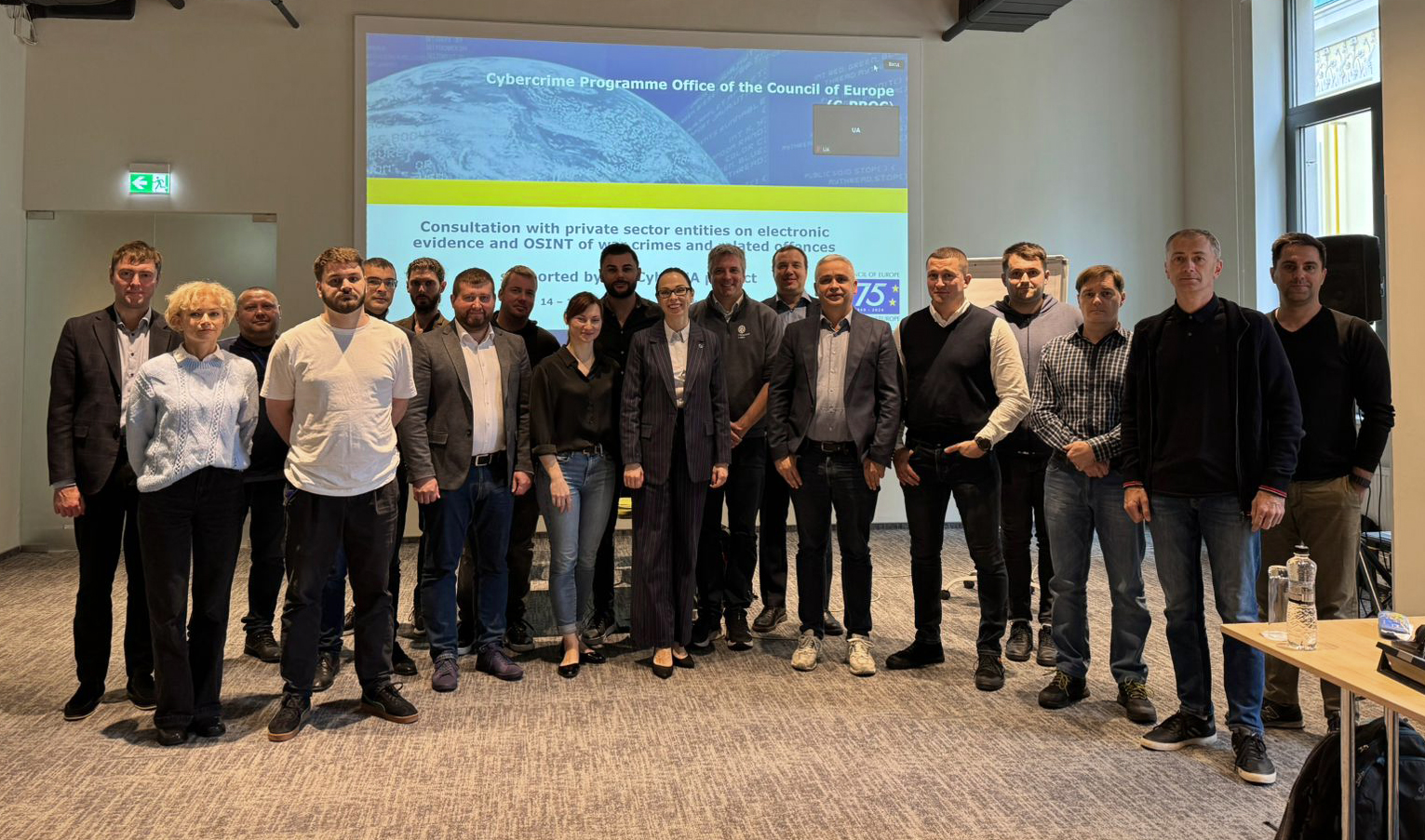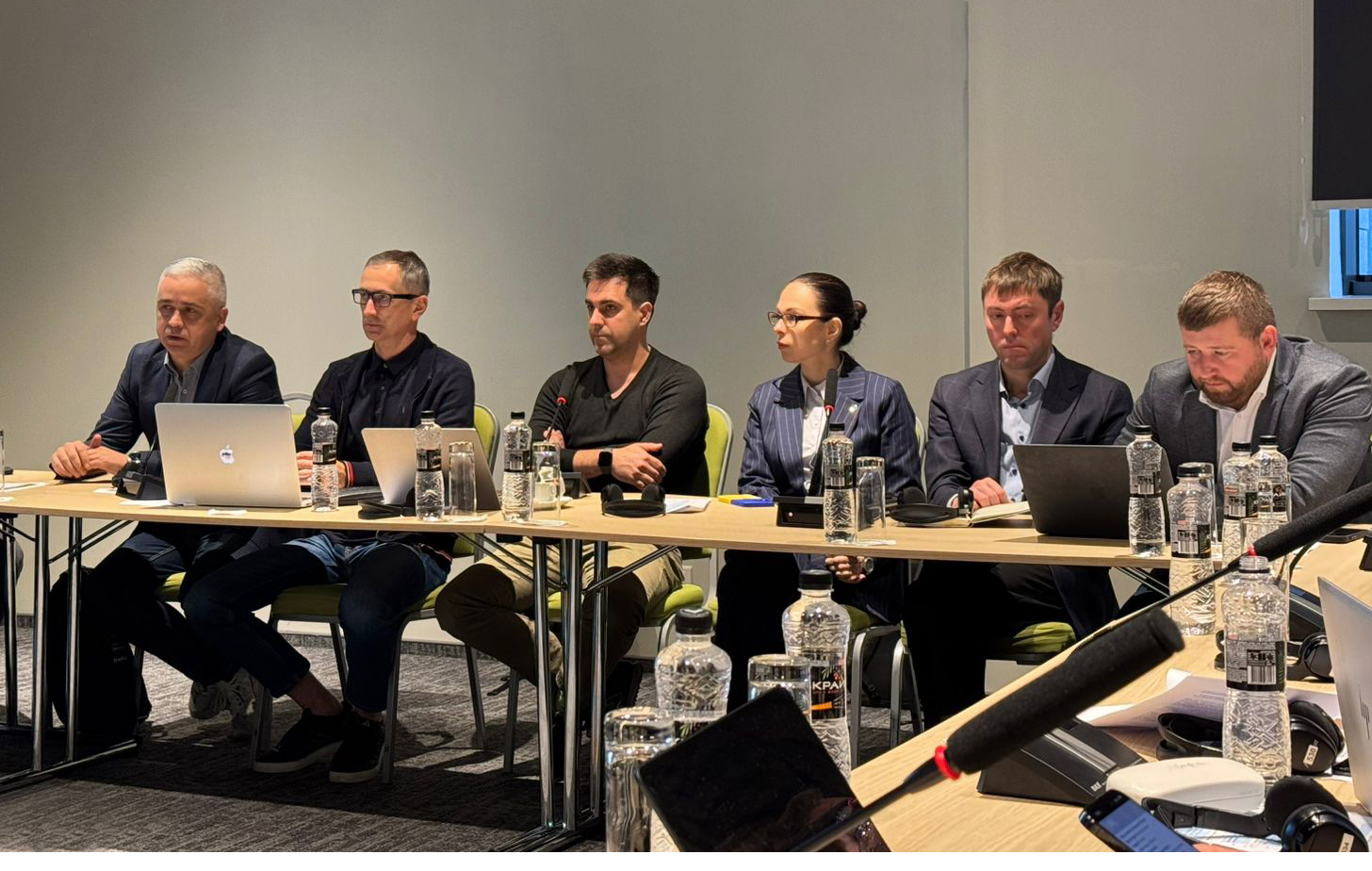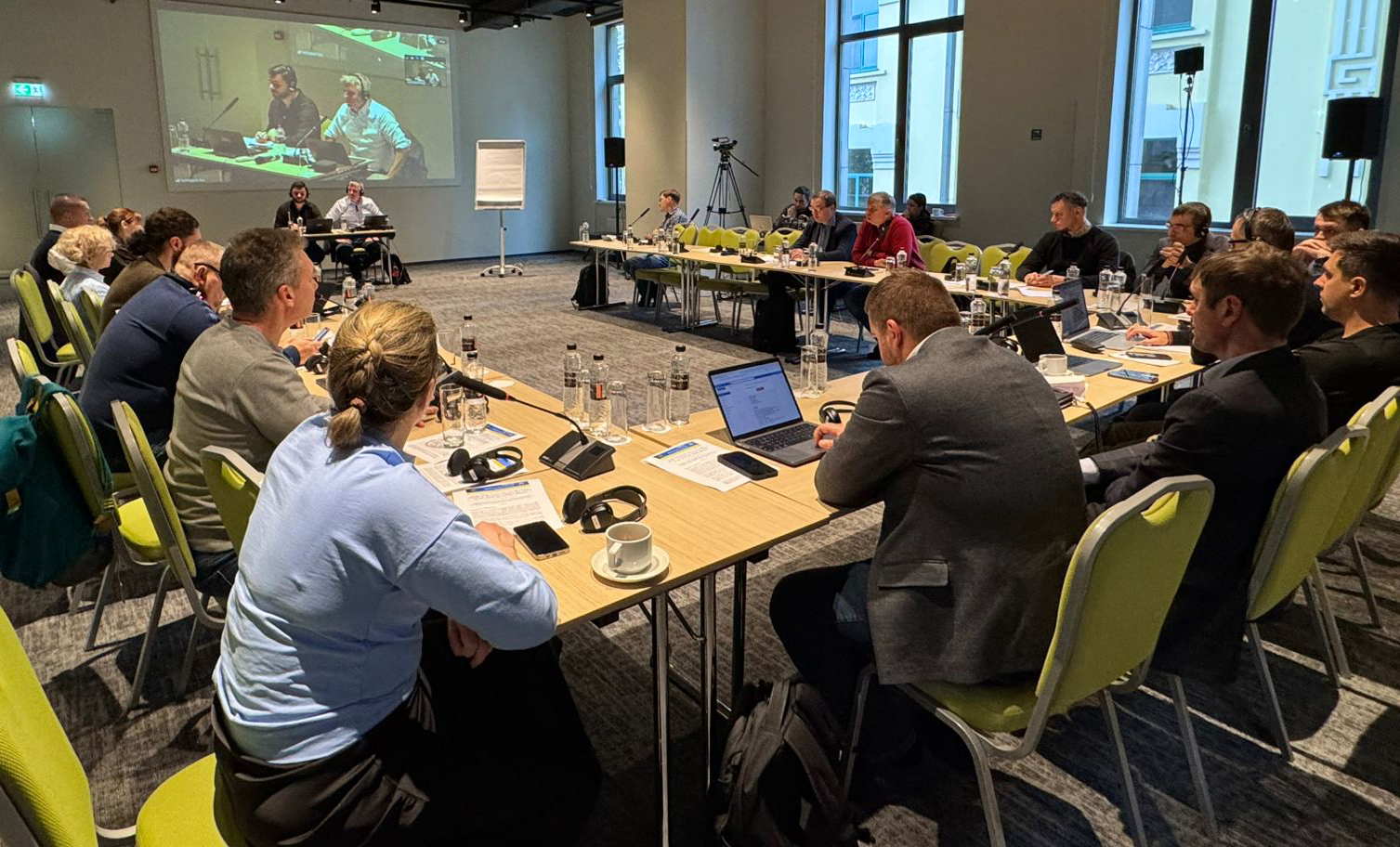NCCC and Council of Europe held a forum on electronic evidence and OSINT in the context of documenting war crimes of russia
 On 14-15 October, the National Coordination Centre for Cybersecurity under the National Security and Defence Council of Ukraine and the Council of Europe's CyberUA project held a forum with private sector actors on electronic evidence and OSINT of war crimes and related offences. The event was attended by about 30 representatives of the private sector, the expert community, critical infrastructure operators, private cybersecurity companies, NGOs and OSINT investigators.
On 14-15 October, the National Coordination Centre for Cybersecurity under the National Security and Defence Council of Ukraine and the Council of Europe's CyberUA project held a forum with private sector actors on electronic evidence and OSINT of war crimes and related offences. The event was attended by about 30 representatives of the private sector, the expert community, critical infrastructure operators, private cybersecurity companies, NGOs and OSINT investigators.
The event was aimed at discussing the main approaches to collecting, processing and transferring electronic evidence and open source data (OSINT) in the context of documenting and investigating war crimes committed by russia during its armed aggression against Ukraine. After all, the private sector plays a key role in collecting and providing such data, which is important for criminal investigations.
 ‘In Ukraine, public-private partnerships in cybersecurity have undergone significant development in the context of the full-scale invasion of russia. Documenting the unprecedented number of war crimes has become an extremely important task that cannot be accomplished without the support of the private sector and the use of electronic evidence. Combined efforts in the areas of OSINT, data storage and analytics, and digital forensics are particularly important. The NCCC serves as a platform for this cooperation. I am grateful to our European partners for their expertise and experience. However, it is important to synchronise our work with international and European institutions to ensure that the war criminals of the aggressor country are brought to justice,' said Nataliia Tkachuk, Head of the Information Security and Cybersecurity Service of the National Security and Defence Council of Ukraine, Secretary of the NCCC.
‘In Ukraine, public-private partnerships in cybersecurity have undergone significant development in the context of the full-scale invasion of russia. Documenting the unprecedented number of war crimes has become an extremely important task that cannot be accomplished without the support of the private sector and the use of electronic evidence. Combined efforts in the areas of OSINT, data storage and analytics, and digital forensics are particularly important. The NCCC serves as a platform for this cooperation. I am grateful to our European partners for their expertise and experience. However, it is important to synchronise our work with international and European institutions to ensure that the war criminals of the aggressor country are brought to justice,' said Nataliia Tkachuk, Head of the Information Security and Cybersecurity Service of the National Security and Defence Council of Ukraine, Secretary of the NCCC.
In the course of the event, the participants backed the need to establish a Competence Centre in Ukraine based on Ukrainian experience, whose activities will contribute to strengthening cybersecurity not only in Ukraine but also in Europe.
The event addressed the following key issues:  ● principles of collecting, processing and transferring electronic evidence and OSINT on war crimes and crimes of aggression;
● principles of collecting, processing and transferring electronic evidence and OSINT on war crimes and crimes of aggression;
● knowledge of the requirements for data that is admissible as evidence in criminal proceedings;
● ways in which the private sector can further support state authorities in the detection, investigation and prevention of war crimes and related offences.
The Forum became a platform for sharing experiences and discussing ways of further cooperation in supporting state authorities in the investigation of war crimes.